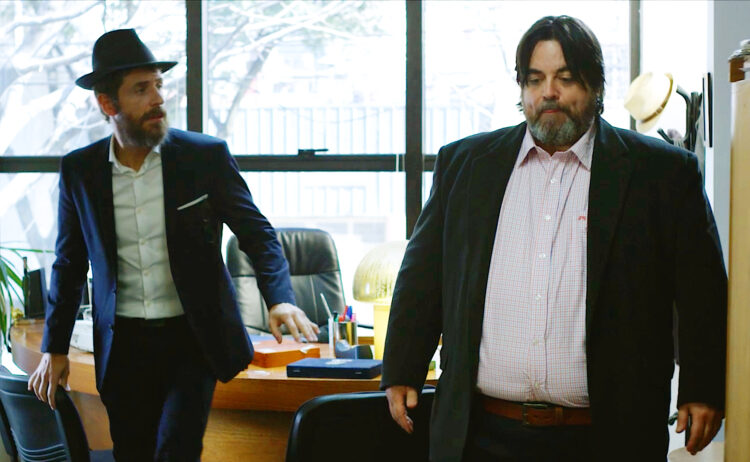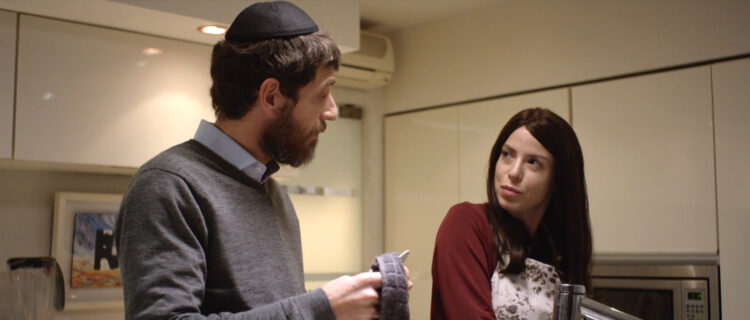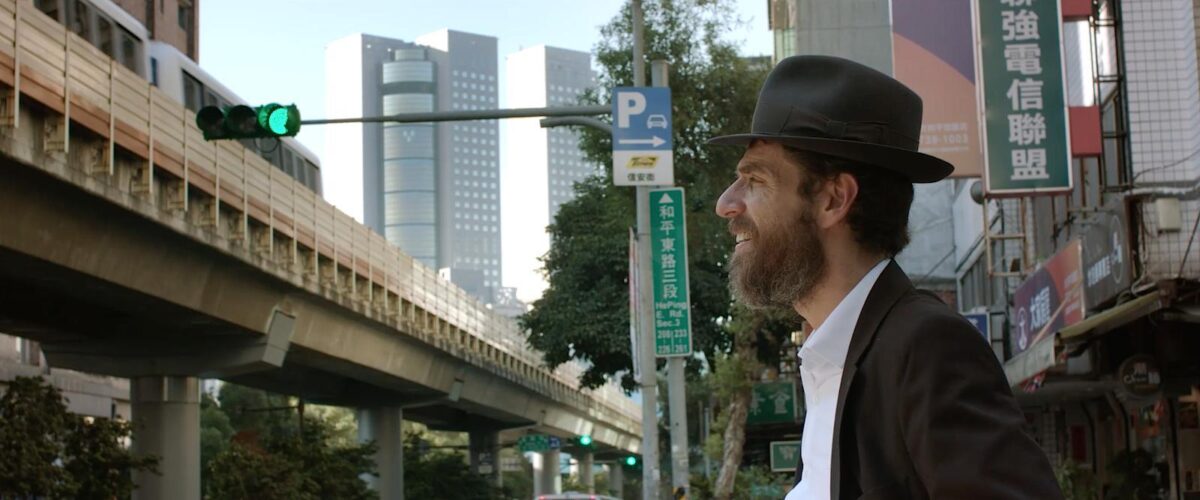Walter Tejblum’s Shalom Taiwan, an Argentinian movie set in Buenos Aires, New York City and Taipei, conforms to the claim that a rabbi with no debts is a rabbi without projects.
This curious motto is the brainchild of Rabbi Aaron (Fabian Rosenthal), the young spiritual leader of a synagogue/community center in Buenos Aires deeply in debt. If its loan is not paid off, it could face foreclosure.
The rabbi expected local donors to come to his rescue, but with Argentina gripped by a recession, he has been cast adrift and left to fend for himself. Desperate to head off insolvency, the rabbi, in desperation, flies to Taiwan to secure donations from wealthy Jews.
The film, both somber and light-hearted, is due to be released on Amazon Prime, iTunes and Apple TV on August 2.
In one of the first scenes, the rabbi goes to New York City in search of donations. A potential donor cannot help him. “We’re in an economic crisis,” he explains. “I can’t make a donation. The numbers don’t add up.”
Another donor writes out a check for $500, but this symbolic sum hardly solves his problem.

Upon his return to Buenos Aires, the rabbi hears from a friend that rich Jews in Taiwan can be of assistance. At first, he dismisses the suggestion, but after Suarez (Carlos Portaluppi), the money lender, informs him he has only 10 days to repay the loan, he decides to try his luck in Taiwan.
Laila (Mercedes Funes), the rabbi’s wife, supports his plan, but claims that his rash decision to borrow funds to remodel the synagogue got him into this mess in the first place.

In Taipei, the capital of Taiwan, the intrepid rabbi speaks to a local rabbi, who provides him with a list of contacts. In quick succession, he encounters several Chinese people who are assumed to be Jewish.
The first donor, accompanied by his young son, meets him at an amusement park. He seems detached and uninterested, but much to the rabbi’s surprise, he proves to be extremely generous.
Buoyed by this windfall, the rabbi travels by train to a scenic tea plantation in the countryside. The monosyllabic owner proves to be stingy. In the meantime, the rabbi learns that Suarez has begun to take control of the synagogue.

The rabbi’s last contact, a stylishly-dressed woman, offers him all the money he needs if he can persuade her 23-year-old daughter to dump her boyfriend. Upon meeting the couple, he rejects her proposition.
By this point, the rabbi has been away from home longer than he had anticipated, thereby upsetting his wife, who implies that their marriage is on shaky ground.
Back in Buenos Aires, the rabbi discovers that his financial problems remain unresolved. But there is a silver lining in the clouds. He and Laila reach an amiable agreement that saves their marriage.
Rosenthal delivers a credible performance as a rabbi in distress. The rest of the cast, including Funes, is up to the task. The film itself is mildly entertaining, if not somewhat unusual and eccentric.
